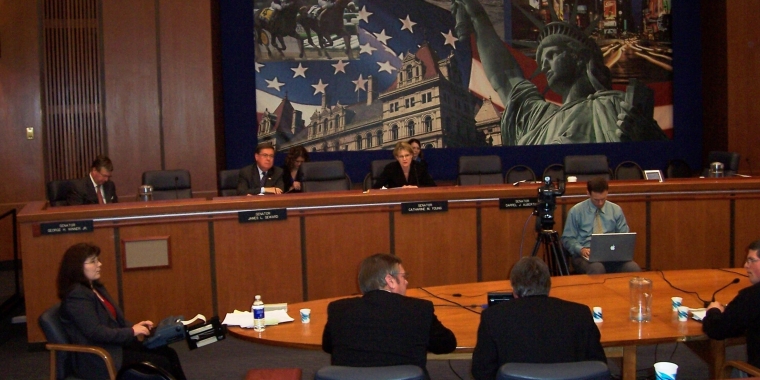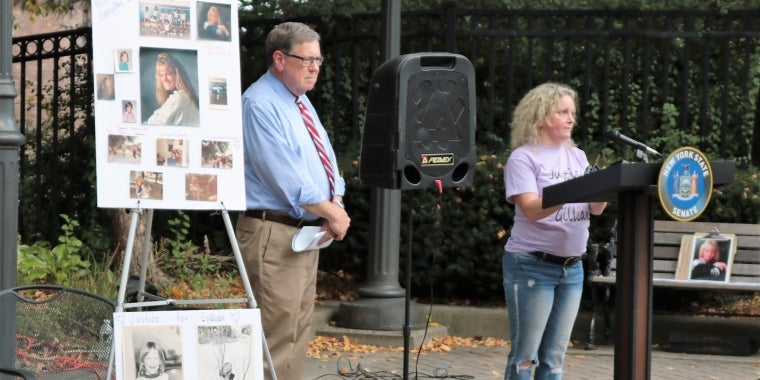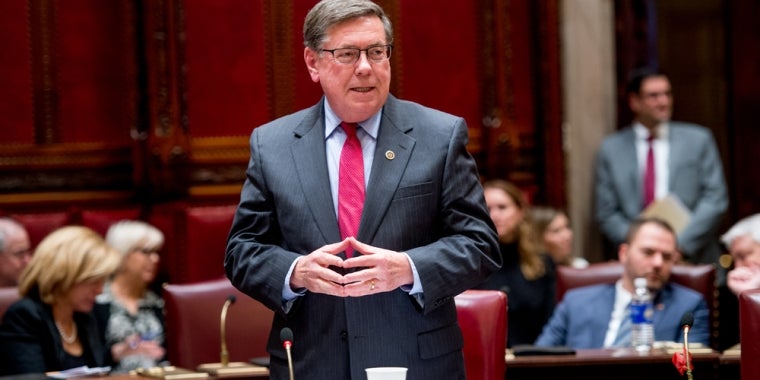
Seward Bands With Farmers - Fights Farm Labor Bill
James L. Seward
March 1, 2010
-
ISSUE:
- Agriculture
- Economic Development

ALBANY, 03/01/10 -- Senator James L. Seward (R/C/I-Oneonta) today participated in a Senate Agriculture Committee hearing on senate bill 2247b, also known as the Farm Worker Fair Labor Practice Act.
“The bill, supported mainly by New York City politicians, would force farms to close, and drive one more industry, our top industry, out of New York state,” said Senator Seward. “Ultimately, farm workers, who the bill is aimed at protecting, would wind up on the unemployment line, costing all New Yorkers.”
The bill would require mandatory overtime for farm workers and also makes mandatory the payment of unemployment insurance for small farm employers, requires disability insurance for off the job injuries and collective bargaining and union organizing.
“Long work days are a way of life on farms and a 40-hour work week is rare. Crops need to be harvested and dairy cows must be milked. This bill will make these jobs unachievable,” said Seward. “While the labor bill may be reasonable in a factory setting where work conditions are predictable, it is unfair to force farmers, who have to deal with severe weather and other uncontrollable factors, to follow such constricting guidelines.
“Small family farmers are already struggling to make ends meet and this bill would be the final nail in the coffin for many of those who remain. The bill would also jeopardize the availability of locally produced foods for the residents of New York.”
Farmers who employ seasonal/migrant workers are subject to rigorous inspections by the Department of Health, Department of Labor and the Department of Environmental Conservation. Employers are subject to the state sanitary code as well as EPA and DEC worker protection standards and are required to pay workers minimum wage. Farm workers are required to have a completed farm work agreement which covers pay rates, housing benefits and working conditions. Farm workers are also eligible for state-funded health care and child care.
“New York farms already face strict regulations and are regularly inspected by state and federal authorities. Farmers also provide their workers with quality pay and in many cases, other benefits like housing and food. Farming is a unique business and must be treated as such.”
The New York Farm Bureau and the National Federation of Independent Business are among the trade organizations opposed to the legislation.
“Farmers are already facing tough times; receiving low prices for the food they produce, paying more in taxes and watching utility costs skyrocket. This bill would plow many family farms under, and it must be stopped,” concluded Seward.
Share this Article or Press Release
Newsroom
Go to NewsroomJustice for Gillian
November 25, 2019

Seward Calls for Halt of New Bail Laws
November 20, 2019

Statement from Senator Seward
November 6, 2019

